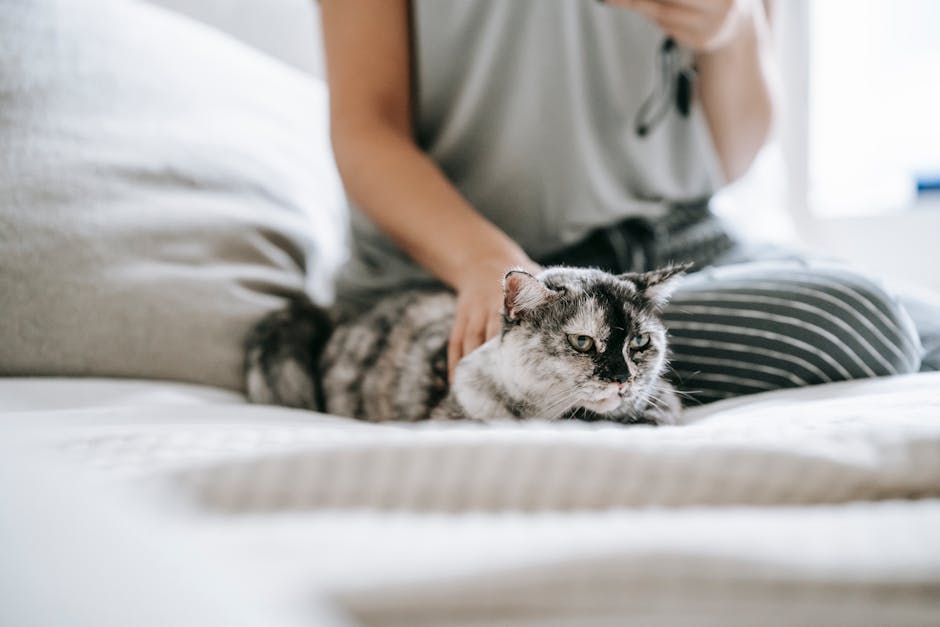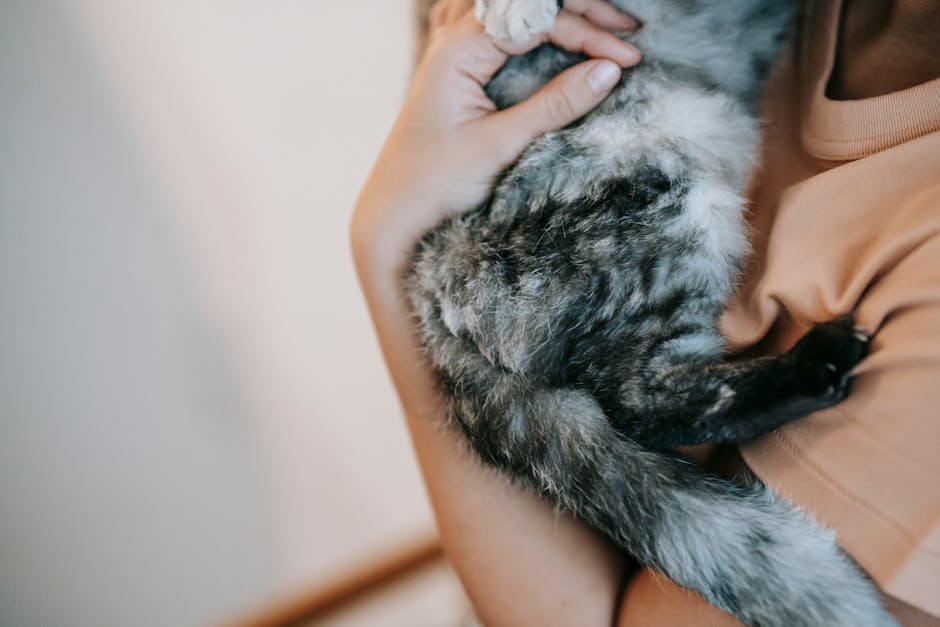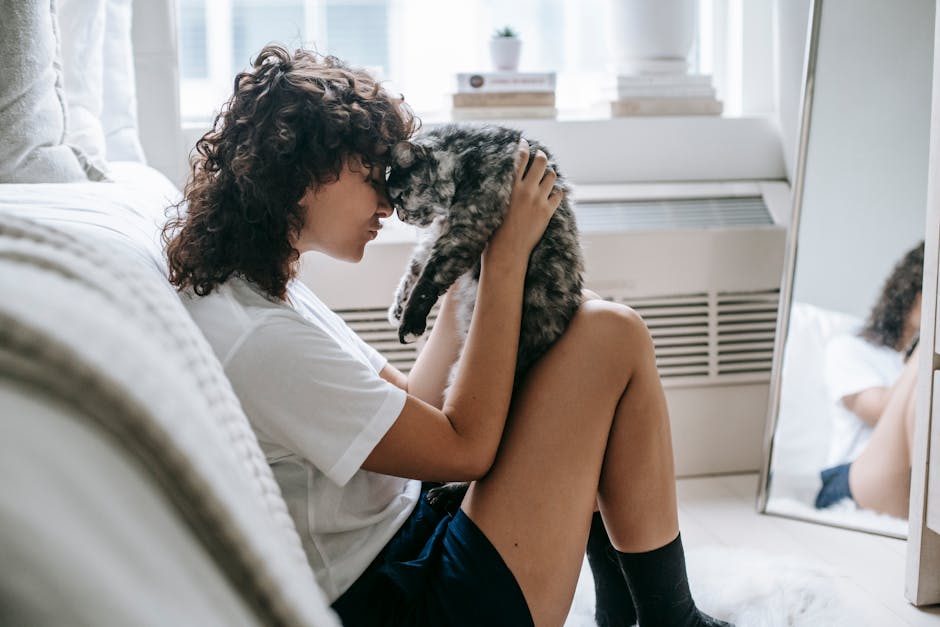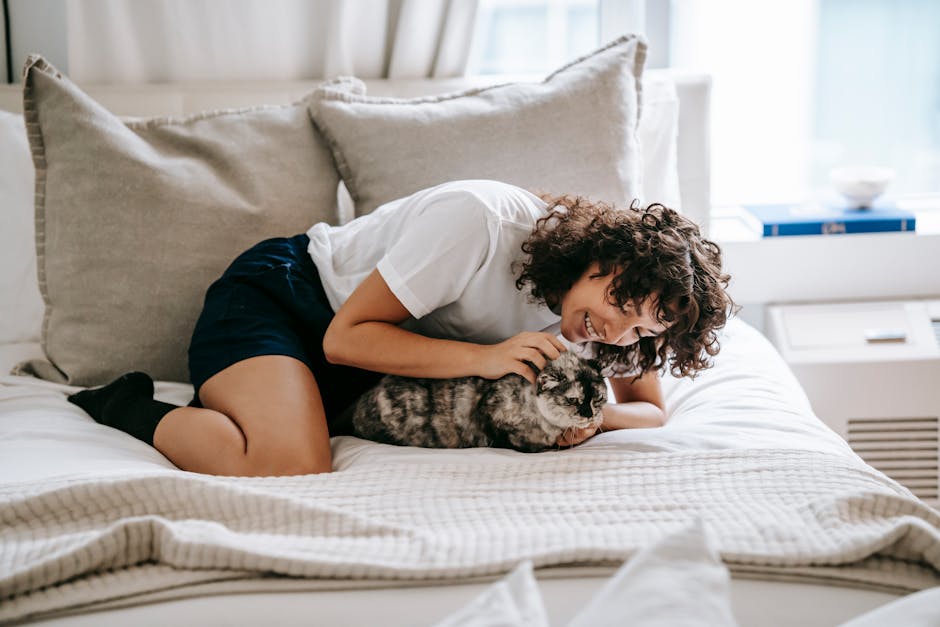Cats are mysterious creatures. While they might seem to be fiercely independent, there's no denying that they form strong bonds with their owners. As a cat owner, you might often wonder how much your four-legged friend remembers you when you're not around. Can they remember you even if you've been away for a long time, or do they forget quickly? In this blog post, we'll explore just how long cats can remember their owners, and what factors play a role in their memory retention.
Overview of the scientific research on cat memory (including brain structure and function)

Cats are known for their sharp intellect and independence, but how long can they remember their owners? Scientific research on cat memory has shed light on the brain structure and function of these remarkable creatures.
One study conducted by the University of Michigan found that cats have an exceptional short-term memory, able to retain information for up to 16 hours. Another study found that cats have a hippocampus, the area of the brain responsible for memory, and that it functions similarly to that of humans.
Furthermore, cats have been shown to form spatial memories, remembering the layout of their environment, such as the location of their food bowl and litter box. They also have been shown to have an emotional attachment to their owners, recognizing their voices and scent.
While the exact duration of a cat's memory of their owner is still up for debate, it is clear that these feline companions have a remarkable capacity for memory and emotional attachment.
Explanation of long-term memory vs. short-term memory in cats (and potential limitations)

Cats, like any other living being, are capable of remembering things. However, their unique memory system doesn't work the same way as humans do. They have both long-term and short-term memory, but each serves a different function.
Short-term memory for cats is defined as the ability to retain information for a few minutes or hours and can be influenced by environmental factors such as stress and distractions. This memory type is essential for the day-to-day activities of a cat, like remembering where their food bowl is, or the location of their litter box.
On the other hand, long-term memory in cats is the ability to remember past events that happened weeks, months, or even years ago. This memory is crucial because it helps cats remember their owners, their favorite toys or treats, and familiar areas. However, their long-term memory has some limitations. For example, they might remember the scent of a person or place, but they might struggle to recall a person's face or name.
Moreover, the strength and duration of a cat's long-term memory depend on the significance of the event. Memories that are connected to strong emotions, such as fear or happiness, tend to be more durable than memories that have no emotional significance.
In conclusion, cats have different types of memory that serve different purposes. Short-term memory allows them to remember day-to-day information, while long-term memory enables them to recall more significant events and people. It is essential to understanding our feline companions, and it's also essential to know that each cat has unique memory functions that can impact their behavior and interactions.
Discussion of specific instances where cats have been shown to remember their owners (such as reuniting after extended separations)

Studies and observations have shown that cats can remember their owners even after extended separations. There have been numerous cases where cats have been reunited with their owners after several years, and the cats recognize their owners immediately.
One such instance occurred when a cat named Willow was found in New York City, five years after she went missing from her home in Colorado. Willow was returned to her owners in Colorado, and she recognized them immediately, meowing and rubbing her head against them. Similarly, a cat named Holly went missing while on holiday with her owners in Daytona Beach and was found 200 miles away from home after two months. Holly was reunited with her owners, who reported that she remembered them and was ecstatic to see them again.
These examples illustrate that cats have long-term memory and can remember their owners even after extended absences. It's a testament to the strong bond that can form between cats and their owners and the importance of being a responsible pet owner.
Examination of factors that could affect a cat's memory of their owner (such as frequency and quality of interaction)

The memory of a cat regarding their owner can be influenced by several factors. The frequency and quality of interaction play a significant role in how long a cat can remember their owner. Cats have a long memory that can last for years, and their memory is highly influenced by their emotions.
Cats that had a strong emotional connection with their owners are likely to remember them for a longer time. For instance, if an owner frequently interacts with their cat through playtime and cuddles, the cat is more likely to remember the owner. Cats that have spent more time with their owners are also likely to remember them.
On the other hand, cats that had less interaction with their owners might not remember them for a long time. Cats that are rarely played with or interacted with on a regular basis might forget their owner quickly. This could be due to the fact that cats with little interaction tend to have less emotional attachment to their owners.
Overall, the frequency and quality of interaction between a cat and their owner play a strong role in how long a cat can remember their owner. It is important for cat owners to spend quality time with their cats to create a strong bond and long-lasting memory.
Comparison of cat memory to other domesticated animals (such as dogs and horses)

Studies have shown that cats have long-term memories that can last up to several years. However, when compared to dogs and horses, cats' memories are often considered shorter. Dogs, for example, are believed to have an incredible memory that can last for several years. This might be due to their strong sense of smell and their ability to associate specific smells with certain memories. Similarly, horses are also known to have excellent memories, as they can recall specific pathways or directions they have taken in past experiences. In contrast, cats seem to rely more on their acute senses, such as their sight and hearing, to remember their owners. Additionally, cats' independence might also play a role in their memory of their owners, as they may not associate their owners as closely as dogs and horses do. Nonetheless, cats still have a remarkable ability to remember their owners and create lasting bonds with them.
Exploration of potential benefits of strong owner-cat bonds (including stress reduction and improved behavior)

Strong bonds between a cat and their owner can have positive outcomes for both parties. A study conducted by the Journal of Veterinary Behavior found that cats who had closer relationships with their owners displayed less aggressive behavior and were less likely to experience stress-related health problems. Additionally, when cats were separated from their owners for prolonged periods, they showed signs of separation anxiety and were more likely to display unwanted behaviors such as urinating outside the litter box.
Therefore, taking the time to nurture a strong bond with your cat can pay off in terms of improved behavior and overall health. Some ways to strengthen the bond with your cat include providing regular social interaction, playing together, grooming them and giving them treats or rewards for good behavior. By investing in a strong owner-cat relationship, both you and your furry friend can reap the benefits of an enriching and fulfilling companionship.
Possible ways to strengthen a cat's memory of their owner (such as positive reinforcement and consistent interaction)

Cats are known for their independent nature, but that doesn't mean they don't form close bonds with their human owners. Cat owners often wonder how long their feline friends can remember them, especially after a long separation. While there isn't a definitive answer, research suggests that cats have a fairly good long-term memory.
However, like humans, cats can forget things over time. To strengthen a cat's memory of their owner, positive reinforcement and consistent interaction can be helpful. For example, cats can be rewarded with treats or playtime when they respond to their owner's name or come when called. Consistent interaction, such as daily playtime or grooming sessions, can also help to reinforce the bond between a cat and their owner.
Additionally, leaving familiar items around the house, such as clothing or bedding with the owner's scent, can also help a cat remember their owner more easily. Familiar scents can help to comfort and reassure cats, even after a long separation.
Overall, while there's no way to guarantee a cat will remember their owner forever, frequent positive interactions and familiar scents can help to strengthen their memory and bond with their human companion.
Explanation of how changes in behavior or environment could affect a cat's memory of their owner

.
Cats have an incredible memory, which allows them to remember their owners for an extended period. However, several factors can impact a cat's memory of their owner. Changes in the cat's environment, such as moving to a new home, could cause the cat to forget their previous owner. Similarly, if the cat experiences behavioral changes due to aging or illness, their memory of their owner may also be affected. On the other hand, a cat that experiences positive and consistent interactions with their owner is more likely to have a stronger memory of them. It's crucial for owners to offer consistent love and care to their cats to strengthen their bond and ensure a lasting memory.




